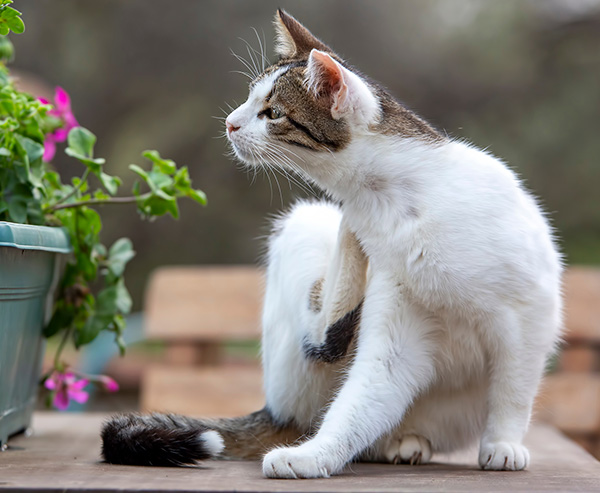Pet Allergies: Itchy, but Manageable
Just like humans, pets can have allergies, too. Whether it be to food, plants, or something else, allergies are quite common - and can be extremely frustrating for both pet and owner.
If managed properly, pet allergies can be controlled, allowing your pet (and you) to live in peace and comfort.
Have an itchy pet?
Not sure what to do?
The Most Common Causes of Itchy Pets?
The medical term for itchy skin - pruritus - is quite common in pets. Allergies are not always the cause, but they tend to be the usual cause. Itching in pets can be caused by the conditions:
- Direct contact with soaps, perfumes, and cleaning solutions - also called contact dermatitis)
- Allergy to fleas (flea allergy dermatitis)
- Food or seasonal allergies
- Mites (known as sarcoptic mange)
- An increased immune response to an allergen (atopic dermatitis)
How Can I Tell if My Pet is Itchy?
Unlike pain, it is almost impossible for a pet to hide their itching. Signs of chronic itchiness in pets include:
- Inflamed ears
- Scaly and dry patches of skin
- Red, raw skin from scratching and licking
- Loss of hair
- Hair missing between the toes (indicates licking and chewing at the paws)
- Rubbing at face and ears
- Lick granulomas and lesions on the skin
Treatment is Just a Phone Call Away
Our veterinarians have plenty of experience in pet allergies, which involves diagnosing and treating skin disorders and keeping the skin healthy and protected from possible infection.
Pets with allergies can also develop secondary bacterial infections in their skin, which can cause more severe itching and scratching and lead to further skin damage. This vicious cycle is why our hospital is equipped and prepared to invest the time to identify and treat what ails your pet.
To properly diagnose an allergy, we’ll need to examine your pet, possibly do blood work, and consider other options if our findings are inconclusive. Treatment varies in complexity.
*For emergencies please call our hospital at (972) 530-3951 and we can advise on the next steps.

